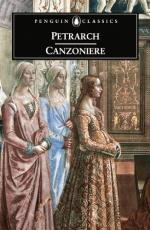|
This section contains 4,285 words (approx. 15 pages at 300 words per page) |

|
SOURCE: Concetta Carestia Greenfield, "The Poetics of Francis Petrarch," in Francis Petrarch, Six Centuries Later: A Symposium, edited by Aldo Scaglione, University of North Carolina Press and The Newberry Library, 1975, pp. 213-22.
In the following essay, Greenfield examines Petrarch's poetics as it relates to Platonism, Aristotelianism, and the legitimacy of pagan literature from the classical period. Greenfield concludes that Petrarch's poetics was "an elaboration of the rhetorical and Platonic tradition against the new Aristotelianism"
Poetry for Petrarch was the catalyst for a humanist awakening, the symbol of a renewed consciousness. Salutati and Boccaccio looked back to Petrarch and Dante as the ones who opened the way for the return of the Muses to Italy. Indeed, if the word Humanism referred to a reawakening centering around the consciousness-expanding power of poetry, Petrarch would certainly be its primary innovator.1 Completely original in his poetry, he developed in his poetics some...
|
This section contains 4,285 words (approx. 15 pages at 300 words per page) |

|


